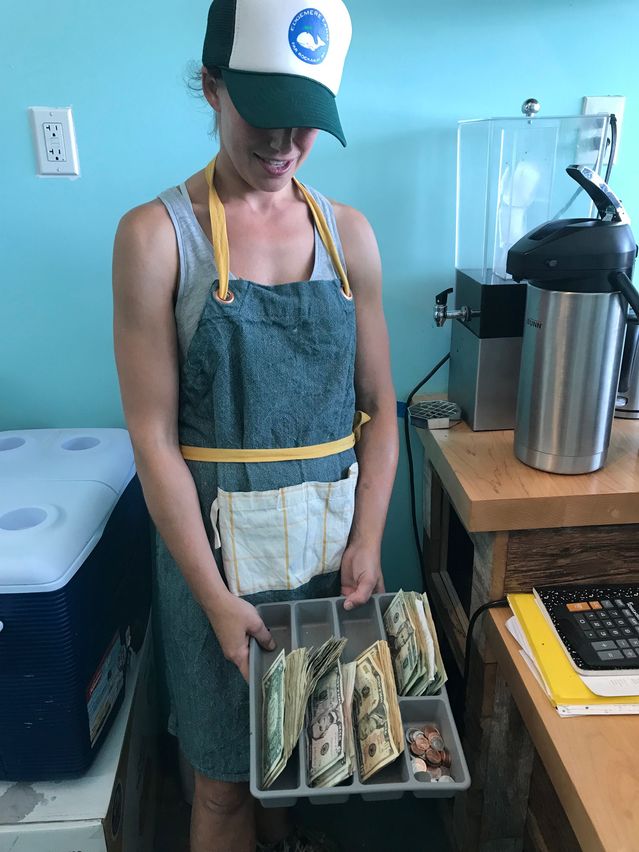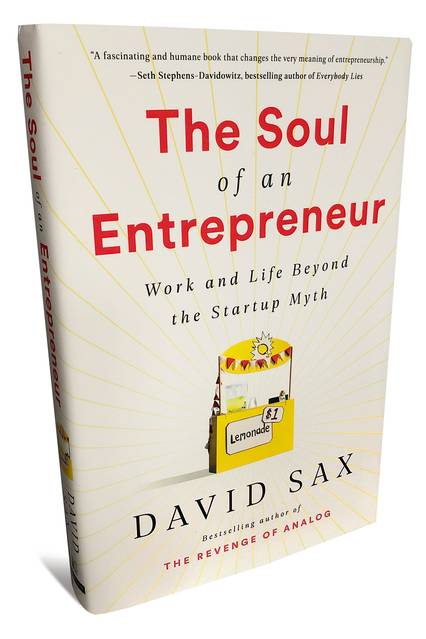In the 1980s, two out of 10 Americans worked for themselves. By 2016, that number fell to about one in 10. Who knows how much more it will shrink before the Covid-19 pandemic passes? In “The Soul of an Entrepreneur: Work and Life Beyond the Startup Myth,” David Sax speaks up for the many entrepreneurs around the country who have scratched out a living in the shadow of the privileged few, the venture-backed startup founders in Silicon Valley.
Though the book understandably omits the recent appearance of the new coronavirus, Covid-19 has given it a timely relevance. Mr. Sax says he would like to “shift the conversation back to the businesses that actually touch us every day”—that is, touch us in the physical world rather than the digital one. As we shelter in place, we cannot help but become concerned about those businesses. Their ability to recover and serve us is in grave peril.
Mr. Sax provides seven anchor stories of entrepreneurs, with shorter profiles of others mixed in, spanning widely varying industries and circumstances. Some were already struggling financially when the author paid them a visit.
We meet, for instance, Tracy Obolsky, the proprietor of Rockaway Beach Bakery in Queens, N.Y., a “lifestyle business” that Ms. Obolsky closes whenever she feels an urge to go surfing. Mr. Sax, a freelance writer who lives in Toronto, is an especially passionate defender of lifestyle businesses, which are meant “to fund the living expenses and lifestyle ambitions” of their owners. The author himself savors the freedom he enjoys to grab a friend and go paddleboarding around Toronto’s downtown harbor whenever he wants. A mutual friend asks them, “Do you two even work?” His answer: “Of course we work . . . but on our terms.”

Tracy Obolsky, owner of Rockaway Beach Bakery in Queens, N.Y.
Photo: Courtesy of David Sax

The Soul of an Entrepreneur
By David Sax
PublicAffairs, 289 pages, $28
Other entrepreneurs profiled by Mr. Sax are not so lucky: the recent immigrants who own a tiny Syrian restaurant in Toronto; the operators of an unprofitable grass-fed-cattle ranch in California; the fourth-generation farmers running a highly efficient but money-losing dairy.
Mr. Sax has sought out profile subjects whose collected stories show us the many facets of entrepreneurship. Bodega y Cavas de Weinert, a winery in Mendoza, Argentina, provides a short course on the conflicts that can arise in family-owned businesses. A chapter introducing us to Jesseca Dupart, the founder of New Orleans-based Kaleidoscope Hair Products, explains that for the past two decades minority women have constituted the fastest-growing group of entrepreneurs in the country. But firms owned by African-American women barely generate an average of $25,000 in revenue a year; for firms owned by white females, the amount is more than $200,000 annually.
In one of the book’s most moving accounts, Mr. Sax tells of an all-hands meeting at NCC Automated Systems, a conveyor manufacturer located outside Philadelphia. The firm’s owner, Kevin Mauger, assembled the group to make a surprise announcement. After asking his colleagues to stand up, he announced: “If you are standing and you are an employee of NCC you are an owner.” Mr. Mauger had put in place an employee stock-ownership plan, which allows workers to gain shares in the company over time. Mr. Sax connects the NCC story to the growth of social entrepreneurship, and includes a grateful nod to Yvon Chouinard, founder of Patagonia and author of the influential (and delightfully titled) memoir, “Let My People Go Surfing.”
The weakest portions of the book are those that talk about Silicon Valley. The chapter centered on two Stanford undergraduates, aspiring entrepreneurs who have nothing more than a wisp of an idea for a startup, does not show us much of anything. Errors abound: Stanford undergraduates cannot, as the author claims, “spend their entire time at Stanford” taking classes on entrepreneurship; the university offers but a handful and with limited enrollments. Mr. Sax garbles Steve Jobs’s marital history, misspells the name of Stripe co-founder Patrick Collison and fails to understand that infamous flameout Theranos was never backed by the Valley’s “top venture capitalists.” Most inexplicably, Mr. Sax makes no mention of the “techlash” against Amazon, Facebook, Google and others that has dimmed Silicon Valley’s former luster. Silicon Valley is simply no longer the foil the author intended it to be.
Most of the book is given over to the entrepreneurs with whom Mr. Sax spent time during the course of one year’s reporting. But he also frequently injects himself into their midst, along with his wife, his parents and his wife’s parents—hardy entrepreneurs one and all, Mr. Sax wants us to know and appreciate. When he quotes his father as saying “The day you stop working is the day you start dying,” he is wholly insensible to how well-worn this adage is. Still, several times in the book he declares “I am an entrepreneur.” And he tells those readers who, like him, take everything related to work personally that they should realize that they, too, are entrepreneurs. “Say it out loud. Take pride in it.” Like any self-help guide, this will be appreciated by those looking for a pep talk. But it will grate on the ears of everyone else.
When we reach the end of the book, we do not have an explanation of why entrepreneurship has declined dramatically in recent decades. But we do come away with an appreciation of the daunting challenges faced by small businesses and, most poignantly, by those who supply our food.
Thirteen years after its founding, that grass-fed-cattle ranch nets only $30,000 annually; its owner, Seth Nitschke, has to work part-time as a cattle-feed salesman to make ends meet. And yet he will not let go of his dream of independence. “I don’t want to go back to working for someone else,” Mr. Nitschke says.
We can only be grateful to him and his kindred spirits.
Mr. Stross is the author of “The Launch Pad: Inside Y Combinator, Silicon Valley’s Most Exclusive School for Startups.”
Copyright ©2022 Dow Jones & Company, Inc. All Rights Reserved. 87990cbe856818d5eddac44c7b1cdeb8
